Special Tools
EN-48313 Timing Chain Retention Tool
Removal Procedure
- On LP1 and LY7 engines, remove the lower intake manifold with the upper manifold. Refer to Lower Intake Manifold Replacement .
- On LLT engines, remove the intake manifold. Refer to Intake Manifold Replacement .
- Remove the right camshaft cover. Refer to Camshaft Cover Replacement - Right Side .
- Remove the right intake and exhaust camshaft position sensors. Refer to Camshaft Position Sensor Replacement - Bank 1 (Right Side) Intake and Camshaft Position Sensor Replacement - Bank 1 (Right Side) Exhaust .
- Remove the right intake and exhaust camshaft position actuator solenoids. Refer to Camshaft Position Actuator Solenoid Valve Solenoid Replacement - Bank 1 (Right Side) Intake and Camshaft Position Actuator Solenoid Valve Solenoid Replacement - Bank 1 (Right Side) Exhaust .
- Rotate the crankshaft balancer using the balancer bolt until the camshafts are in a neutral (low tension) position. The camshafts will be parallel with the camshaft cover rail (1).
- Use a paint stick to create an alignment mark (17) on one of the timing chain links and the adjacent tooth on the exhaust camshaft position actuator (18).
- Use a paint stick to create an alignment mark (16) on one of the timing chain links and the adjacent tooth on the intake camshaft position actuator (15).
- Use an open end wrench on the hex cast into the left intake and exhaust camshafts and rotate the camshafts toward each other in order to create slack in the chain between the actuators.
- Unscrew the EN-48313 so that the legs of the tool are retracted.
- Insert the EN-48313 between the camshaft actuators, rearward of the timing chain until the top line that is scribed in the body of the tool (1) is adjacent to the top surface of the cylinder head (2). This is the approximate installed position.
- Ensure that the feet (2) on the legs of the tool are facing the front of the engine.
- Partially expand the legs (1) of the EN-48313 by turning the T-shaped handle clockwise.
- Continue expanding the EN-48313 until the feet (1) contact the timing chain. Do not tighten at this time.
- Hand tighten the EN-48313 .
- Use an open end wrench on the hex cast into the body of the EN-48313 and hand tighten the T-handle.
- Use an open end wrench on the hex cast into the right intake and exhaust camshafts and rotate the camshafts towards each other in order to create slack in the chain between the actuators.
- The EN-48313 is now properly installed to hold the timing chain in position.
- Use an open end wrench on the hex cast into the camshaft in order to prevent engine rotation when loosening the camshaft position actuator bolt.
- Remove the right exhaust camshaft position actuator bolt.
- Remove the right exhaust camshaft position actuator. When removing the actuator, place the chain on the engine block side of the actuators.
- Rotate the actuator in order to align the opening in the actuator reluctor wheel with the cam sensor boss in the front cover, to allow actuator removal.
- If removing both the exhaust and intake camshaft actuators, the timing chain can be draped over the EN-48313 once the actuators have been removed.
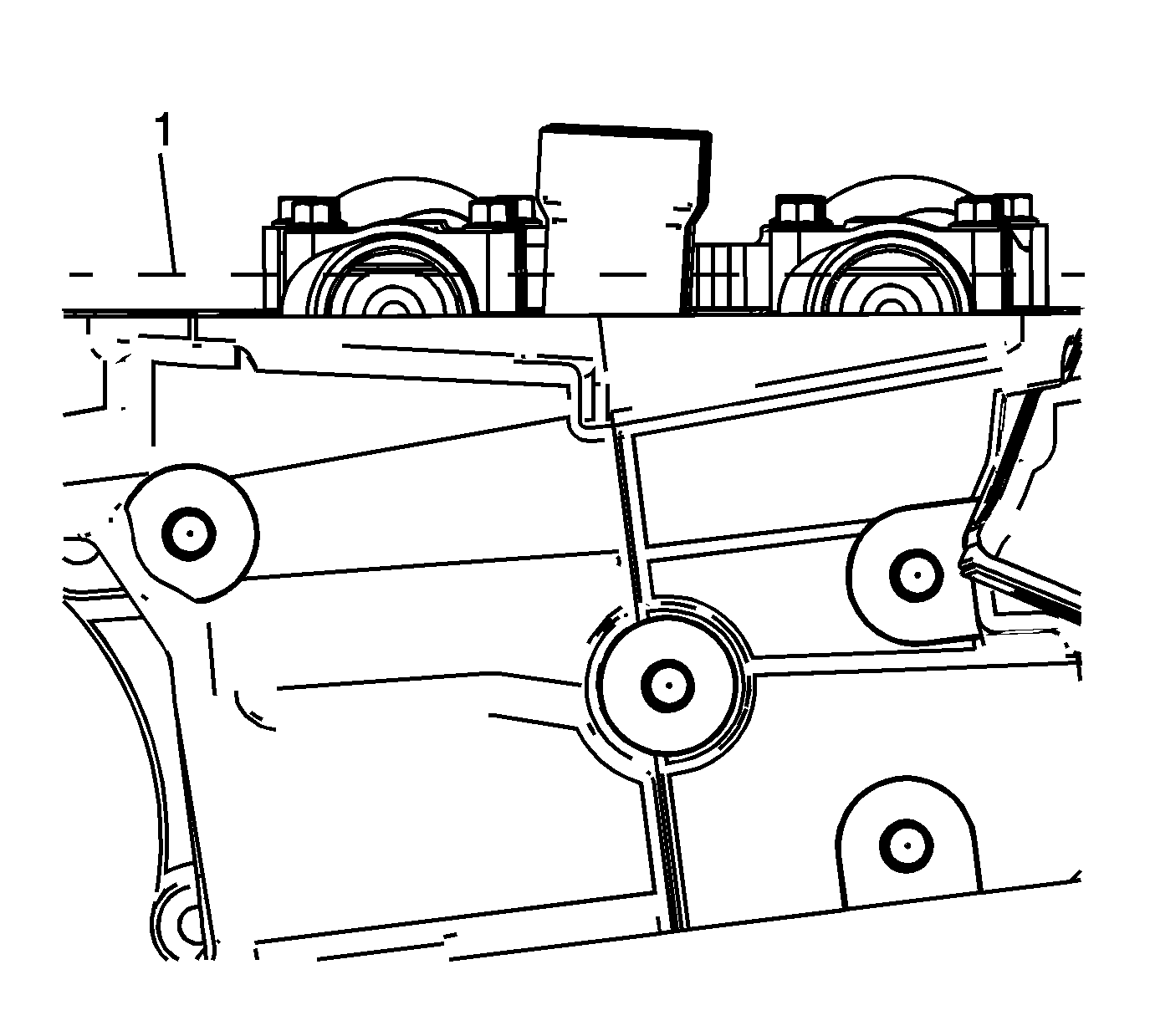
Important: Rotate the crankshaft balancer bolt in a clockwise direction ONLY.
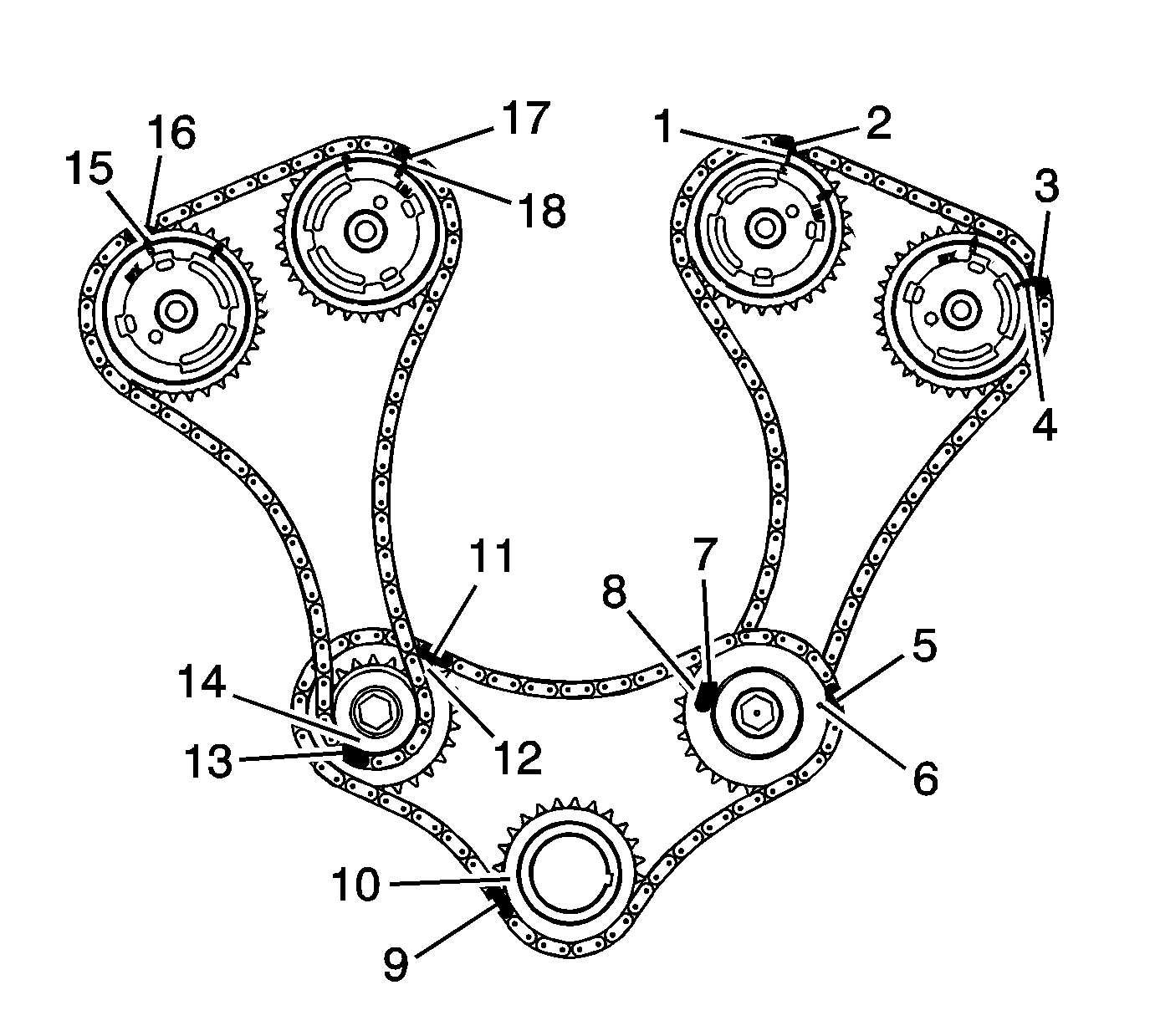
Important: Ensure that the camshaft timing chain and the camshaft position actuators are marked for proper assembly.
Notice: Refer to Torque Reaction Against Timing Drive Chain Notice in the Preface section.
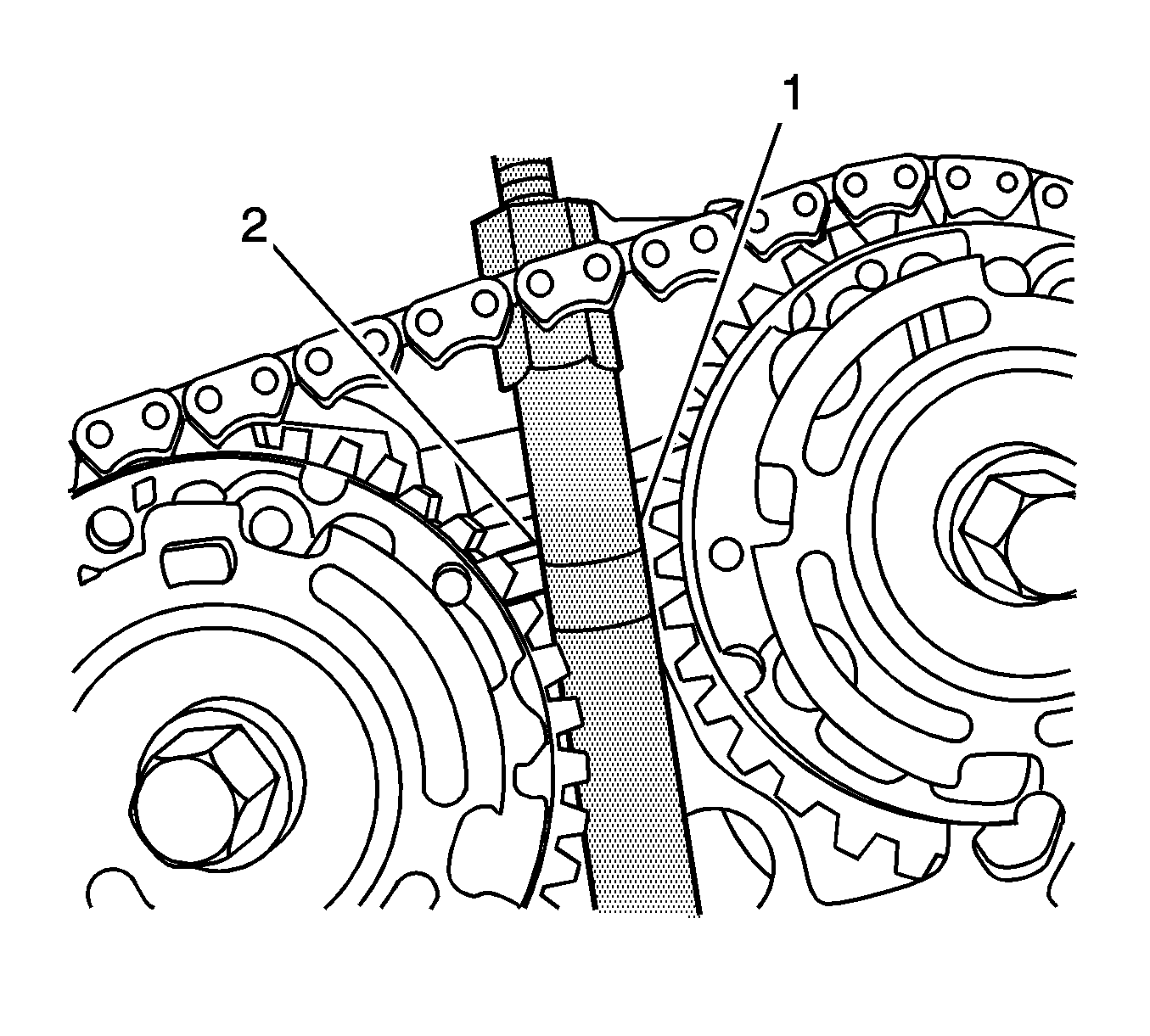
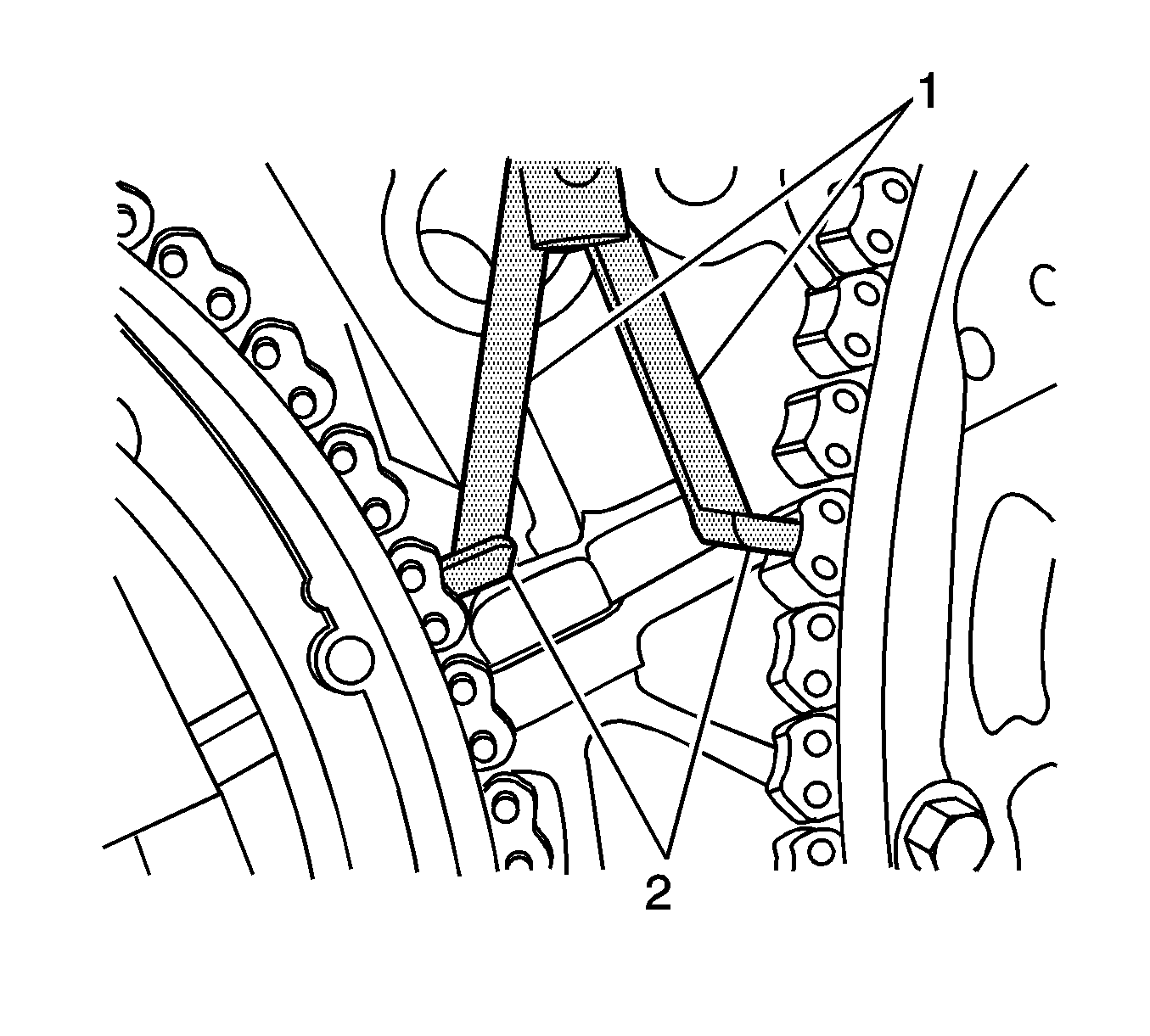
Important: The engine front cover is removed for clarity in the following graphics, but NOT required to perform the procedure.
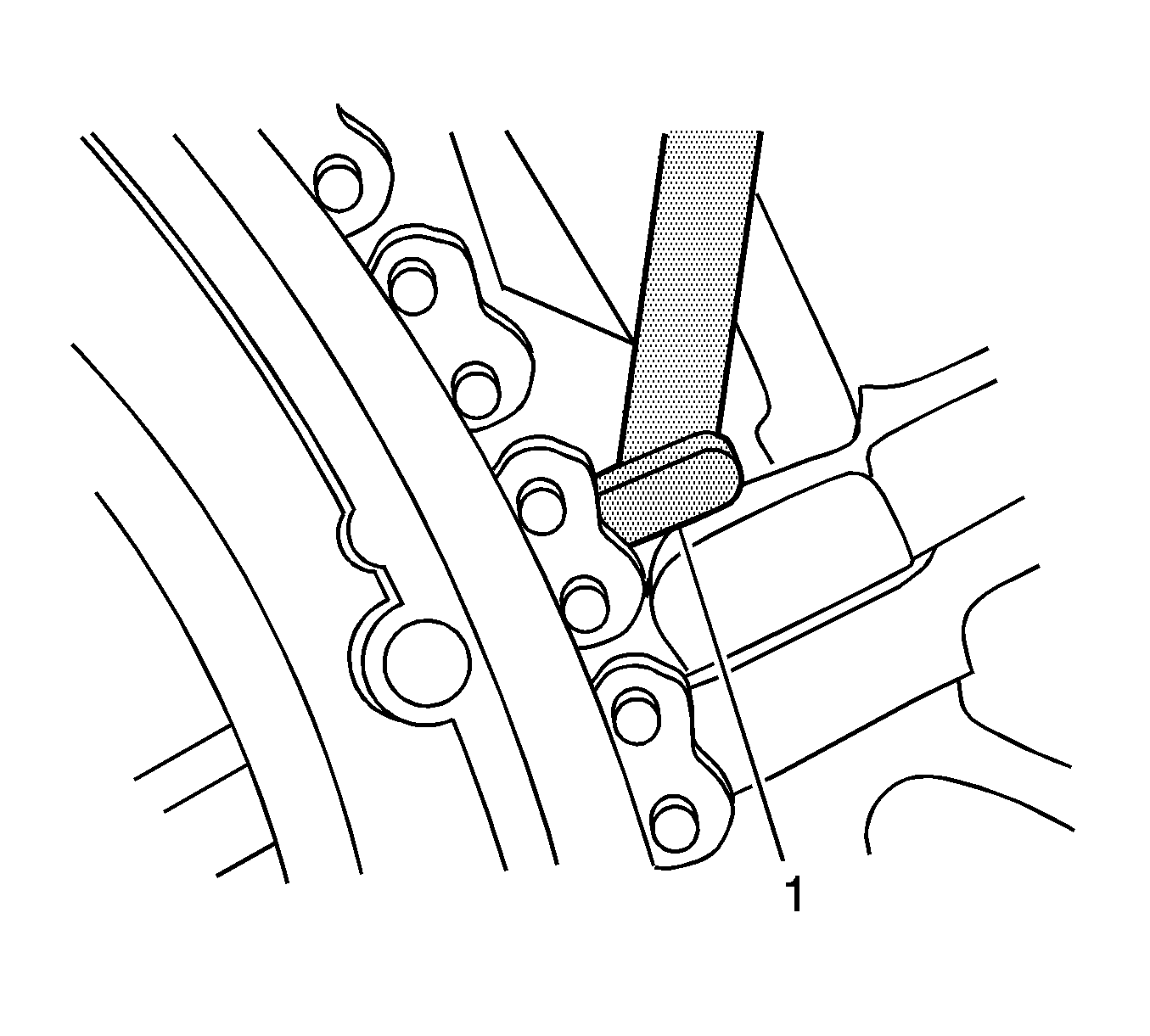
Important: Ensure that the foot (1) of the EN-48313 is engaged into one of the link pockets to prevent chain slippage during tightening of the EN-48313 .
Important: Do not allow the body of the EN-48313 to rotate when tightening the T-handle.
Notice: Refer to Torque Reaction Against Timing Drive Chain Notice in the Preface section.
Notice: Refer to Torque Reaction Against Timing Drive Chain Notice in the Preface section.
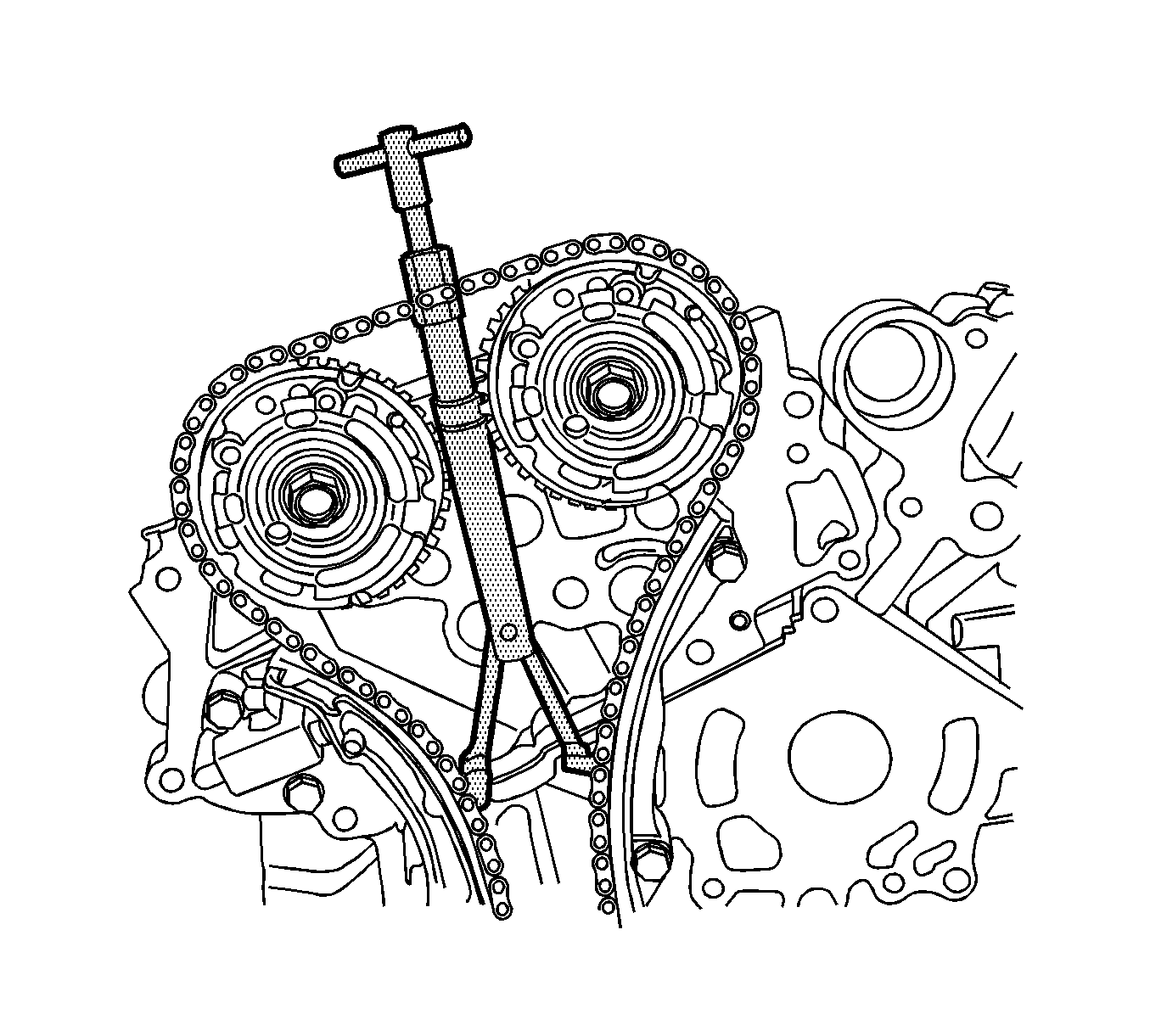
Notice: Refer to Torque Reaction Against Timing Drive Chain Notice in the Preface section.
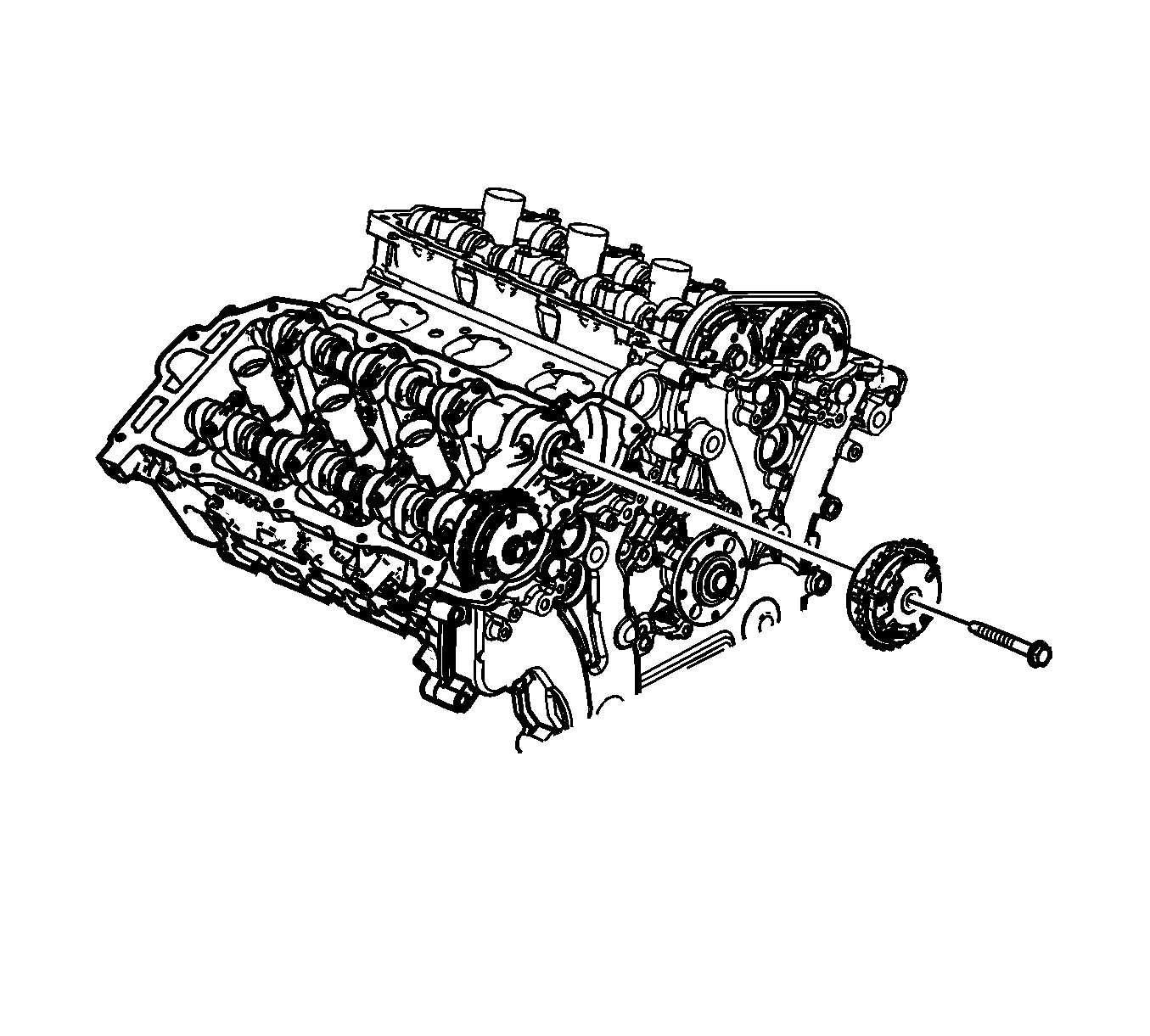
Installation Procedure
- Align the exhaust camshaft actuator alignment mark (18) to the timing chain alignment mark (17) made during disassembly.
- Ensure that the intake camshaft actuator alignment mark (15) and the timing chain alignment mark (16) are also aligned.
- Position the exhaust camshaft actuator to the camshaft and install the actuator bolt hand tight.
- Remove the EN-48313 .
- Tighten the right exhaust camshaft position actuator bolt.
- Install the right intake and exhaust camshaft position actuator solenoids. Refer to Camshaft Position Actuator Solenoid Valve Solenoid Replacement - Bank 1 (Right Side) Intake and Camshaft Position Actuator Solenoid Valve Solenoid Replacement - Bank 1 (Right Side) Exhaust .
- Install the right intake and exhaust camshaft position sensors. Refer to Camshaft Position Sensor Replacement - Bank 1 (Right Side) Intake and Camshaft Position Sensor Replacement - Bank 1 (Right Side) Exhaust .
- Install the right camshaft cover. Refer to Camshaft Cover Replacement - Right Side .
- On LLT engines, install the intake manifold. Refer to Intake Manifold Replacement .
- On LP1 and LY7 engines, install the lower intake manifold with the upper manifold. Refer to Lower Intake Manifold Replacement .

Important: Ensure that the camshaft timing chain and the camshaft position actuators are marked for proper assembly.
Notice: Refer to Fastener Notice in the Preface section.

Tighten
Tighten the bolt to 58 N·m (43 lb ft).
